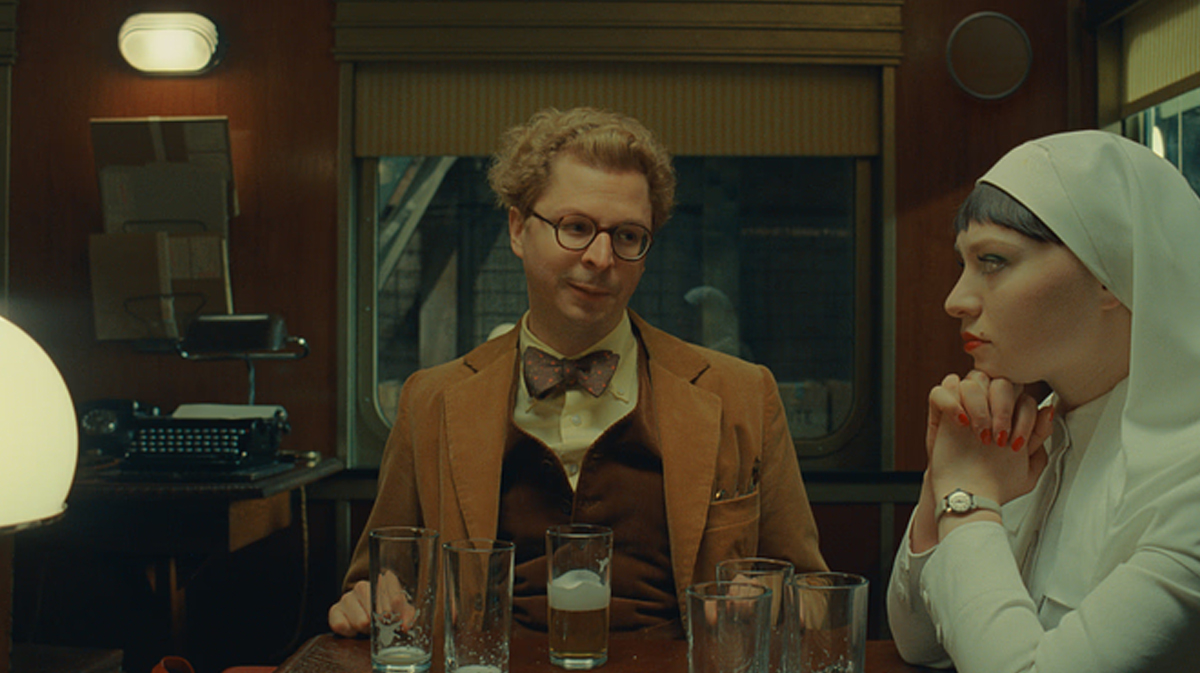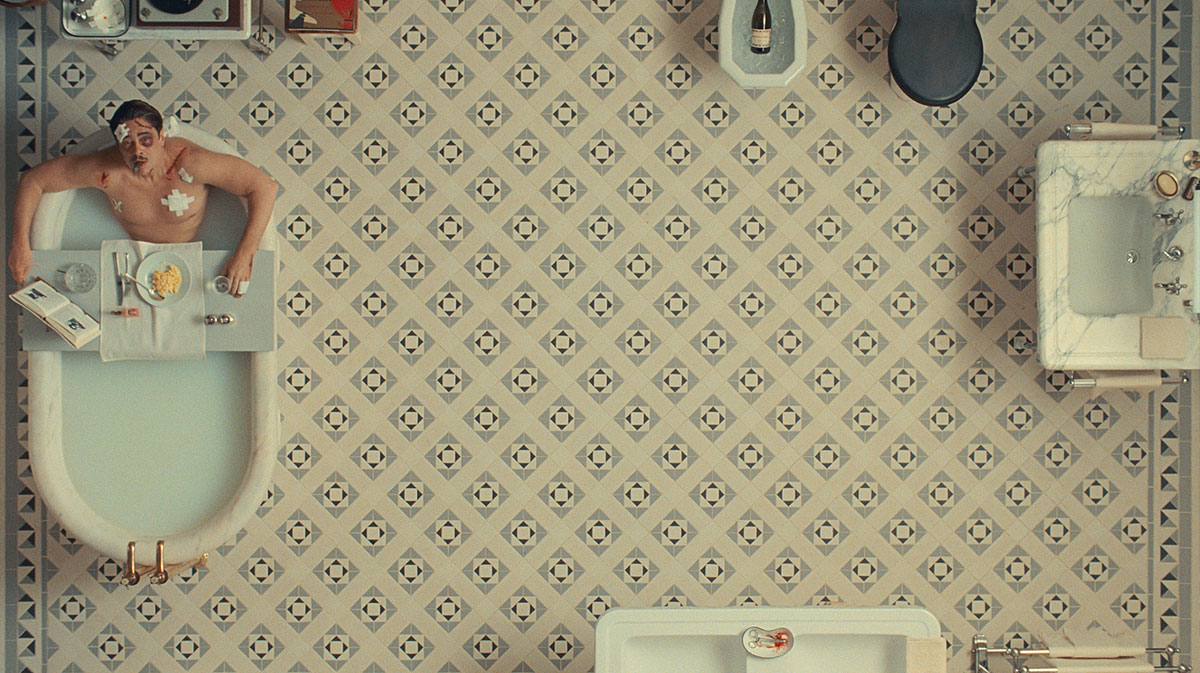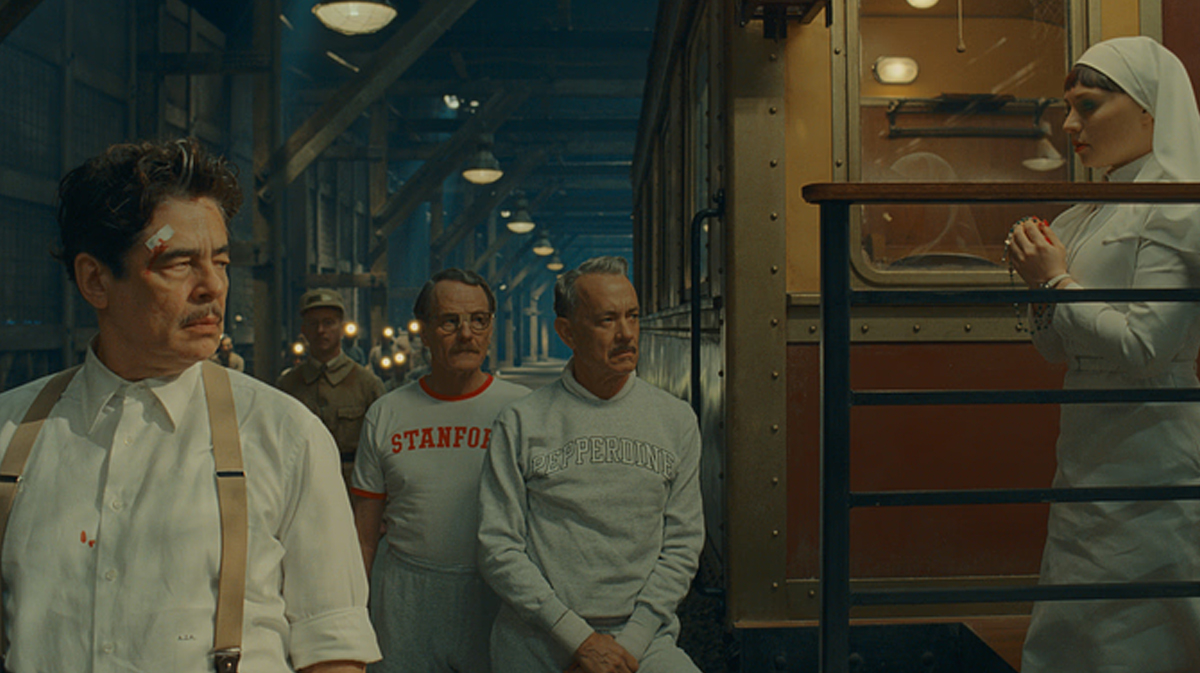In some ways, it feels like the AI-generated parodies of his style have gotten to Wes Anderson, as his new movie, The Phoenician Scheme, feels as if the auteur is going out of his way to reclaim his style and prove he's the only one who can do it. This is true, but he sacrifices the quality of his latest movie to prove a point, wasting Michael Cera's first collaboration with him.
Being part of the Wes Anderson fan club can sometimes feel like an elite club, thanks to his signature tropes that are instantly recognizable. However, over the years, his style has become popular in pop culture, and his last two movies, Asteroid City and now The Phoenician Scheme, may have pushed certain fans to their limit.
Sure, the style and overall relaxing vibe of Anderson's movies are why many — including yours truly — fell in love with his work. However, over the last half-decade or so, it seems Anderson is aware of the fascination of his style. In turn, he has been ramping it up with every passing project.
The Phoenician Scheme is everything wrong with Anderson's recent films. Its simplistic plot becomes convoluted, thanks to the various side quests Benicio del Toro and Mia Threapleton go on, and its visual prowess cannot make up for that.
That's not to say it is all bad. The basketball scene had me cackling, and Michael Cera should have been in a Wes Anderson movie long ago, but The Phoenician Scheme continues a cold streak after Asteroid City, which was a snorefest.

After evading death for the umpteenth time, Zsa-zsa Korda (Benicio del Toro), one of the richest men in Europe, realizes he needs to make a change. The Phoenician Scheme opens with an assassination attempt while he is flying on his private jet.
Against all odds, he survives a plane crash into a cornfield. Korda is like a cat, but he knows he may be getting close to his ninth life.
So, he decides to appoint an heir to his wealth. He has 10 kids — nine boys and one girl — and chooses his only daughter, Liesl (Mia Threapleton), a nun, as his heir.
She is reluctant to accept, but she agrees to a trial period where she will watch her father conduct business. He is trying to finagle gap negotiations for his latest venture, all while being hunted by an assassin.

If you have seen a Wes Anderson movie, you probably are familiar with his style: the perfectly symmetrical blocking, his quick camera movements, and his dry, witty humor.
He delivers the goods if you're only looking to be fascinated by his style. However, despite how much scope The Phoenician Scheme has — including some of the best sets he has ever constructed — it never engulfs you like some of his other films.
The Grand Budapest Hotel remains his magnum opus. It featured a heightened amount of Anderson's stylistic traits, but it never goes overboard.
Similarly, the adventure in The Grand Budapest Hotel mostly follows two characters. The Phoenician Scheme has Korda and Liesl. They may squabble, but they don't have the chemistry of some of Anderson's other duos, like Zero and Gustave.
Holding The Phoenician Scheme to Anderson's highest standard may not be fair. But even then, it's not as heartwarming as Moonrise Kingdom, The Darjeeling Limited, or The Royal Tenenbaums.
Perhaps Anderson is in a different frame of mind these days. His films used to be personal and whimsical. Now, he only opts for the latter. Even whimsy can wear off when it's over-relied on.
Article Continues BelowPart of the problem may be The Phoenician Scheme's pacing. Anderson has previously segmented his films into chapters — The French Dispatch being the most notable example — but that framing device actively works against the movie.
In The French Dispatch's case, it made sense to split the film up. It was a collection of newspaper stories, so having three of the editor's best articles adapted gave the film an identity, even if some of them were better than others.
The Phoenician Scheme features six shoeboxes that Korda shows his daughter early on. Each one represents the different players he will try to convince to fill the gap in his ambitious project.
The lone highlight of these chapters is the one featuring Tom Hanks and Bryan Cranston, who play Leland and Reagan, respectively. They challenge Korda and Prince Farouk (Riz Ahmed) to a game of basketball, which is really just a game of H.O.R.S.E.
The shots these guys come up with are nothing short of hilarious. A simple hook shot would be called something with countless syllables before Hanks or Cranston toss up the most obnoxiously over-the-top shot you've ever seen.
It's such simple but innocent humor. The scene serves as a reminder of how Anderson still has it. He just has to get out of his own way when making his movies to unlock that gear.

There aren't many cases where a particular director's movie being bad hurts. Wes Anderson is one of those, as someone who loves his movies, which stinks since The Phoenician Scheme has some good elements.
Michael Cera is one of the lone highlights in The Phoenician Scheme. I've seen a lot of people ponder why it took so long to get him in one of Anderson's movies. I second that after seeing The Phoenician Scheme.
But again, I fear the AI parodies have gotten to Anderson. His last two movies — both of which have been whiffs — suggest he is desperately trying to reclaim his style. If only he knew that his true fans know that nothing, not even AI, can replace him.
The Phoenician Scheme is playing in select theaters and will receive a wide release on June 13.











